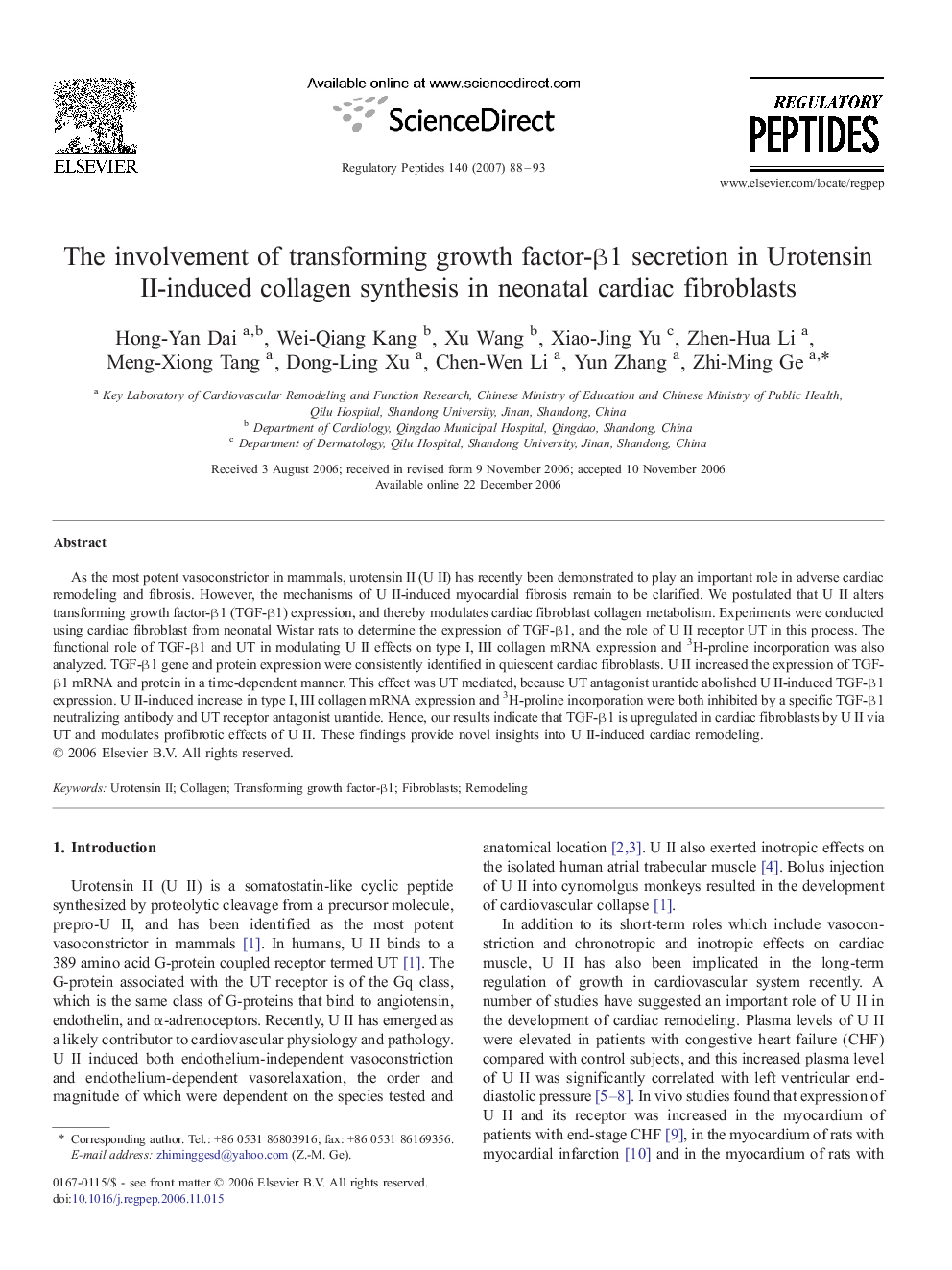| Article ID | Journal | Published Year | Pages | File Type |
|---|---|---|---|---|
| 2023375 | Regulatory Peptides | 2007 | 6 Pages |
As the most potent vasoconstrictor in mammals, urotensin II (U II) has recently been demonstrated to play an important role in adverse cardiac remodeling and fibrosis. However, the mechanisms of U II-induced myocardial fibrosis remain to be clarified. We postulated that U II alters transforming growth factor-β1 (TGF-β1) expression, and thereby modulates cardiac fibroblast collagen metabolism. Experiments were conducted using cardiac fibroblast from neonatal Wistar rats to determine the expression of TGF-β1, and the role of U II receptor UT in this process. The functional role of TGF-β1 and UT in modulating U II effects on type I, III collagen mRNA expression and 3H-proline incorporation was also analyzed. TGF-β1 gene and protein expression were consistently identified in quiescent cardiac fibroblasts. U II increased the expression of TGF-β1 mRNA and protein in a time-dependent manner. This effect was UT mediated, because UT antagonist urantide abolished U II-induced TGF-β1 expression. U II-induced increase in type I, III collagen mRNA expression and 3H-proline incorporation were both inhibited by a specific TGF-β1 neutralizing antibody and UT receptor antagonist urantide. Hence, our results indicate that TGF-β1 is upregulated in cardiac fibroblasts by U II via UT and modulates profibrotic effects of U II. These findings provide novel insights into U II-induced cardiac remodeling.
